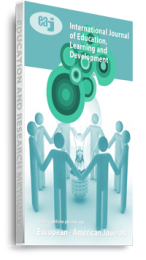The organizational education constitutes a modern tool for the big firms to evaluate and develop the professional skills of their employees and furthermore, to achieve an increase in their efficiency levels. The purpose of this paper is to investigate the correlation between the continuous organizational education of the employees and their anticipation along with the level fulfilment of their working needs, and at the same time how this fact affects the development of their professional skills, in order for them to have a sustainability in the organization. For the needs of the current study, the appropriate data were collected from a sample of 110 employees of a customer service call centre, part of one of the biggest insurance organizations in Greece. The tool used to collect the data was a questionnaire of 20 questions according to the Likert style, along with 3 open questions that were provided to the employees with the option to express their further opinion. Lastly, for the analysis of the above data, the model of the 4 stages of Kirkpatrick was used, a model which evaluates the results of the organizational education. The statistical analysis of the given responses, showed a positive reaction of the employees about the procedures of the educational trainings (personal and as a team) and a relevant positive outcome regarding the results of the organizational educational planning and development. Furthermore, certain strategic deficiencies were discovered and suggestions were proposed in order to be eliminated.
Keywords: Efficiency, Organisational education, Sustainability, development of professional skills.

